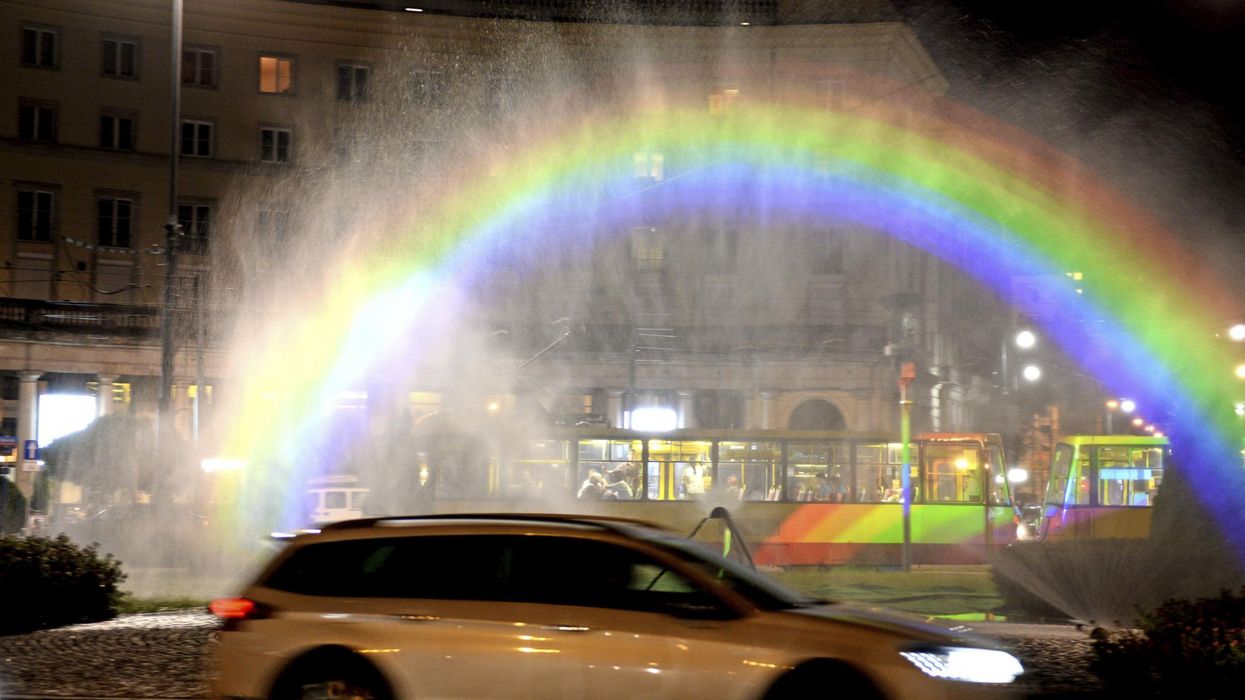News
Jake Hall
Jun 11, 2018

Photo: AP Photo / Alik Keplicz
This weekend saw LGBT+ communities and allies across Europe take to the streets to march for their rights.
Italy, Romania and Athens were amongst the countries hosting Pride parades, but Poland's 'Equality Parade' – a protest against minority discrimination more generally – attracted attention for its clever response to previous years of far-right interference.
In terms of LGBT+ rights, Poland frequently ranks at the lower end of the European scale due to its ongoing refusal to accept same-sex marriage, as well as its lack of legal protections against discrimination and well-documented xenophobia, which is reported to be on the rise.
But the country's most marginalised citizens have remained resilient; this strength was exemplified last weekend by the resurrection of a symbolic rainbow, made from light and water.
The art piece seemed to be a direct response to a 2012 art installation made entirely of flowers, which was built to resemble a rainbow in Savior Square, central Warsaw. Although reportedly designed with no specific political intentions in mind, the piece became a landmark tourist attraction synonymous with equality and LGBT+ rights.
Controversy mounted, with politicians describing the installation as a 'disgusting gesture' and a 'provocation' which is 'offensive to Catholics'; then, in 2013, it was torched by a procession of far-right extremists.
Although this weekend marked the 18th annual Equality Parade, an annual far-right 'independence march' – held every November – has been growing in popularity, this year drawing its largest ever crowds. The original rainbow was set alight by fascists marching as part of this event back in 2013; for years, the two opposing parades have been said to exemplify Poland's current conflict of ideologies.
The country is regularly voted as one of Europe's most homophobic, yet openly gay activist turned politician Robert Biedrón has made international headlines for his unprecedented popularity. Despite identifying as an atheist, he has been met with largely positive public response and could even stand a chance at being elected as Poland's next President.
Despite ongoing opposition, these small symbols of resilience show that Poland isn't a country willing to buckle to intolerance.
What could be a better way to communicate that message than building a literally indestructible rainbow?
More: The majority of young Europeans are no longer religious, says survey
Top 100
The Conversation (0)













